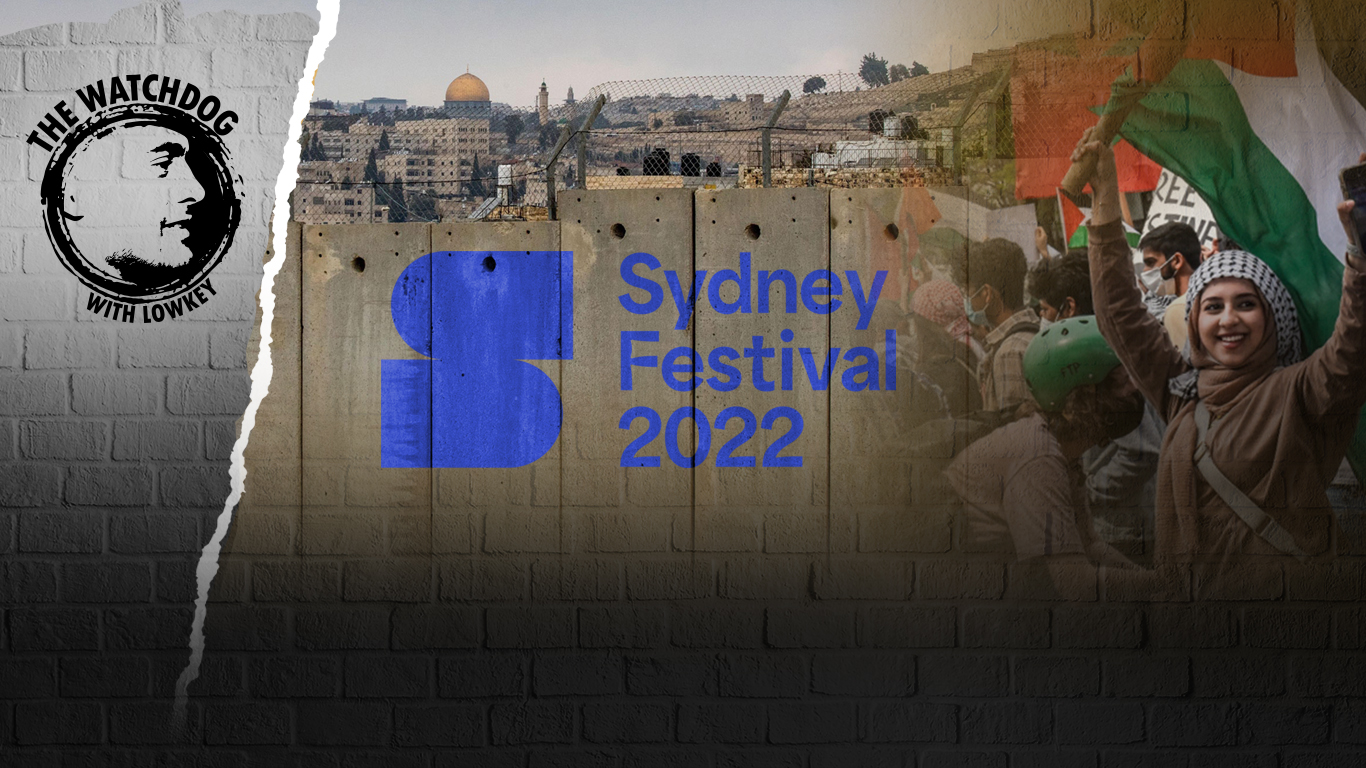Just hours before it is set to begin, dozens of acts are withdrawing from the prestigious Sydney Festival in protest of the event’s sponsorship by the Israeli Embassy. One group that has chosen to do so are Melbourne-based musicians Karate Boogaloo, who explained that:
Boycotts and divestments have a strong track record of holding governments and corporations accountable for their actions, which is why Karate Boogaloo is standing in solidarity with Palestinian people and boycotting the Sydney Festival, as a result of it accepting money from the human rights-abusing regime that is the Israeli Government.
The boycott has proven to be a public-relations disaster for Israel, which attempts to use the arts as a way to launder its image across much of the developed world. Today, Lowkey sits down to talk to two of the boycott’s organizers, Sara Saleh and Jennine Khalik. Saleh is a poet and organizer. The daughter of migrants from Palestine, Egypt and Georgia, she is also the co-editor of the book “Arab, Australian, Other: Stories on Race and Identity.” Khalik is a journalist who has worked for ABC News and The Australian. Like Saleh, she is the daughter of Palestinian refugees.
The Sydney Festival is one of the most established and iconic cultural celebrations Australia has to offer, inviting a huge range of artists and performers from around the world. Yet it caused major controversy after accepting sponsorship from the Israeli Embassy. Saleh accused the festival of being complicit in “art washing” Israeli atrocities, asking Lowkey:
How is it that this festival can reconcile its shallow commitment to First Nations solidarity here [in Australia] while legitimizing and normalizing its relationship with a settler-colonial Apartheid state that we know maintains a system of subjugation and land theft against Palestinians?
Australia is one of Israel’s closest international allies, purchasing Israeli weaponry and voting against international condemnations of its conduct at the United Nations. Khalik explained that simply being Palestinian is a major road block to a successful career in some fields, including hers. Almost immediately after she was hired at The Australian (a national newspaper owned by Rupert Murdoch), her editor was accosted by Israeli diplomats who demanded an answer to why they had hired a Palestinian.
Khalik said it was made patently clear by some of her colleagues that she was not welcome in the newsroom because of her ethnicity and her political stances. However, she persevered because:
I did not want to bullied out by the Zionist lobby groups, because that is what they were aiming for. They did not want me there. And they wanted to make me as uncomfortable as possible. And they had journalists on the inside, working in their service.
Despite its best efforts, Israel is losing its control over “narrative management,” with the Boycott, Divestment and Sanctions (BDS) movement gaining momentum worldwide. If Israel’s name becomes toxic in the world of culture, the dam holding political change back might begin to break.



























